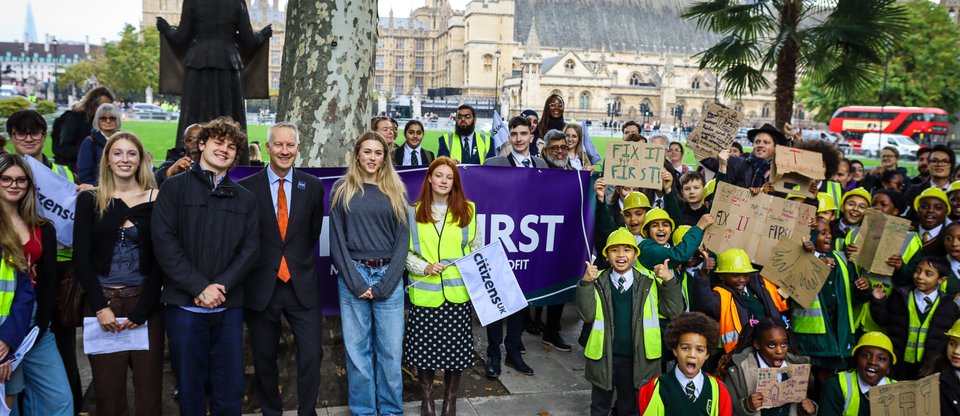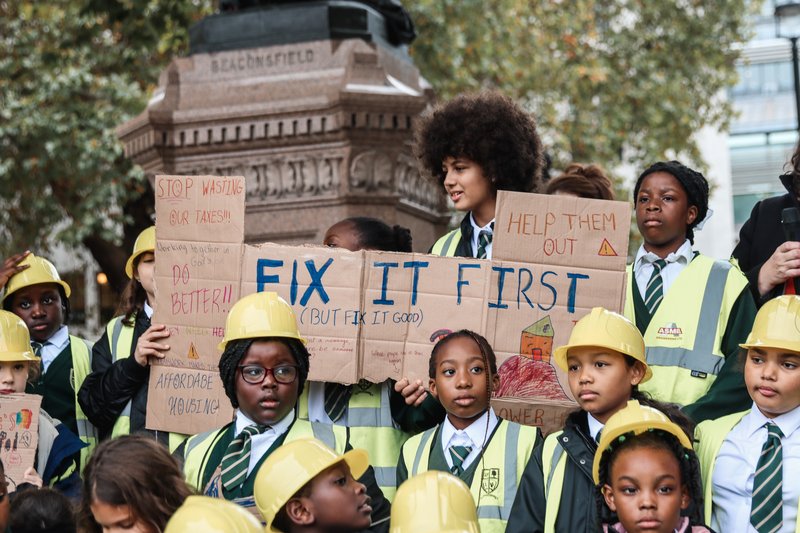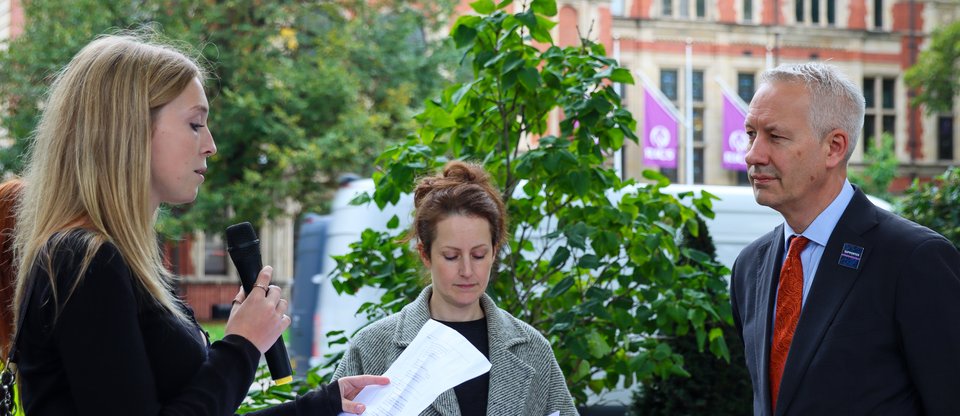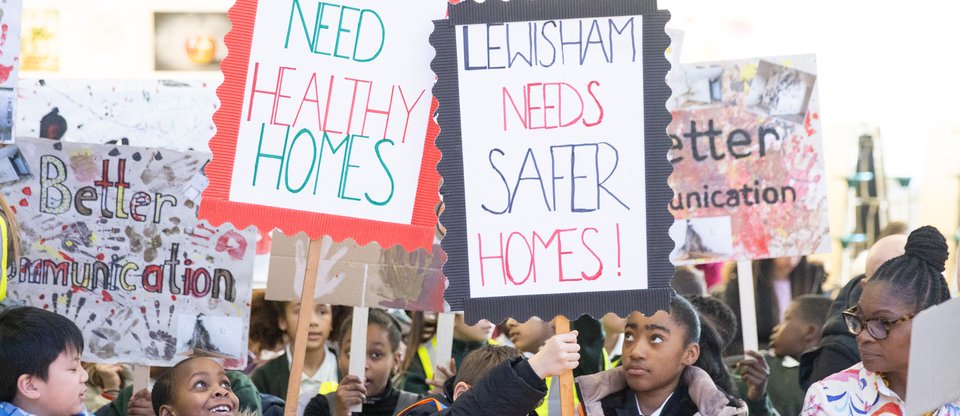'Fix it First': Community leaders call to make repairs for housing part of retrofit
'Fix it First': Community leaders call to make repairs for housing part of retrofit

The UK is in a housing quality crisis. An estimated 4.5 million households are in fuel poverty, spending more than 10% of their income on energy to provide a satisfactory heating regime. Energy debt and arrears currently stands at £3.85bn. Eight million people in England live in a home that presents a serious threat to their health and safety. For this reason, we welcome the Warm Homes Plan and recommend an integrated approach to retrofitting which includes repairs.
On Wednesday 15 October, community leaders from Peterborough Citizens, Leeds Citizens, Citizens Cymru Wales, Somerset Citizens, East London Citizens, and West London Citizens came together for our National Housing Action, and in particular called for the Government to ‘Fix it First’, making repairs part of retrofit.

The action began with community leaders sharing first-hand experiences across other Housing and Homelessness campaign strands, including rundown accommodation and price gouging in Leeds, and families being priced out of new housing developments in Barking and Dagenham.
We also celebrated a national win on temporary accommodation. Just last week, on World Homeless Day, 10 October, the Government announced a £84 million cash boost to help prevent homelessness and support families this winter, including a £11 million commitment to help families with children living in temporary accommodation (TA) to access the Five Basic Standards that we all expect in our day-to-day lives.
Moving to Parliament Square for the latter half of the action, school children were dressed as builders to ask the Minister for Energy Consumers, Martin McCluskey MP, to not just build better and more energy efficient homes, but take a ‘Fix it First’ approach to update housing stock as part of the Warm Homes Plan.
The transition to low-carbon living and clean heat leaves behind those who are struggling daily. Insulation is installed and boilers left broken, solar panels fitted, and taps continue to leak, take up of heat pumps is encouraged in households who are tackling vermin. Instead of bringing communities along in the journey towards net zero, implementing upgrades without repairs could alienate, and reinforces the narrative that bold climate action is in conflict with solving people’s immediate needs, rather than improving their lives. The green transition must be fair and reduce inequality.
Many of those attending the action live in homes that are in a state of disrepair, with leaks, vermin, and mould all being common. This causes serious harm to physical health and mental well-being, costing the NHS £1.4 billion a year.
Hafsa, from Leeds Beckett University, shared the story of friend Luke and their experience of private rental housing in Leeds.
I lived in a private HMO throughout my first and second year at university. During my tenancy, there was no shortage of disrepair, much to the landlord’s apathy. The walls were damp to the touch and caked in mould. The carpet bore fleas, and the basement’s ceiling was steadily eroding, leaving new rubble and plaster covering the floor every time you entered.
I recall spending eight hours cleaning rat droppings, cobwebs, dust, and mould spores with a protective mask the day I moved in. My housemate at the time, who had an autoimmune disease, was often sick due to the mould and poor insulation in the house, which, in the winter months, left it feeling colder inside than it was outside.
Kacey from Citizens Somerset shared experiences of her family living in a home with asbestos, repairs taking months on end, and discovering damp and mould under the flooring. Young leaders from St Antony’s Catholic Primary School and St Bonaventure's in Newham, East London Citizens, sang ‘Homes for the People’ and ‘Can We Fix It’.
We were pleased to be joined by MPs who agreed to write to the Minister for Energy Consumers to include repairs work in the Warm Homes Plan, and encourage local authorities, landlords, and housing providers in their constituency to include repairs and quality improvement as part of their Warm Homes plans.


The action ended with a visit to the Department for Energy Security and Net Zero, delivering a toolbox with the experiences of community leaders.
Communities must be involved in decision-making around their homes. Trusted local messengers are more effective advocates for change than public bodies. Tenant refusal of retrofit measures will be reduced if basic repairs are part of the deal. Equally, cost savings and efficiencies can be made by limiting tenant disruption and upgrading multiple homes in an area. This can only be achieved with community buy-in.
We should all have a safe, healthy, and affordable place to call home. This is crucial to our health and wellbeing, our family and work life, and our dignity.





